The Best Essential Oil for Canker Sores: Natural Relief and Healing
You’re about to savor your favorite dish, but a sharp sting on your inner cheek quickly turns the pleasure into pain. Canker sores are the tiny terrors that can make eating, talking, and even smiling a dreaded experience. These small yet mighty ulcers affect millions, sneaking up when you least expect them, and transforming simple joys into painful challenges.
While conventional treatments offer some relief, many are turning to a more holistic approach rooted in centuries of wisdom: essential oils. Imagine harnessing the power of nature to soothe pain, reduce inflammation, and speed up healing—all with just a few drops.
In this article, we will explore the best essential oils for canker sores and uncover the science behind their healing properties. From the refreshing coolness of peppermint to the antimicrobial might of tea tree oil, discover how these natural wonders can help you regain comfort and confidence.
Essential (Oil) Insights on Canker Sores
- Understanding Canker Sores: Learn about the causes and symptoms of canker sores and how stress, diet, and injuries can trigger these painful ulcers.
- Essential Oils for Relief: Discover the top essential oils with anti-inflammatory and antimicrobial properties that are ideal for treating canker sores.
- Safe Usage Tips: Get expert advice on diluting essential oils and ensuring safe application to avoid irritation and maximize healing.
- Boost Your Environment: Explore how using a nebulizing diffuser can enhance your environment with immune-supporting and stress-fighting essential oils, creating a calming and healing space that aids in canker sore prevention and recovery.
Understanding Canker Sores
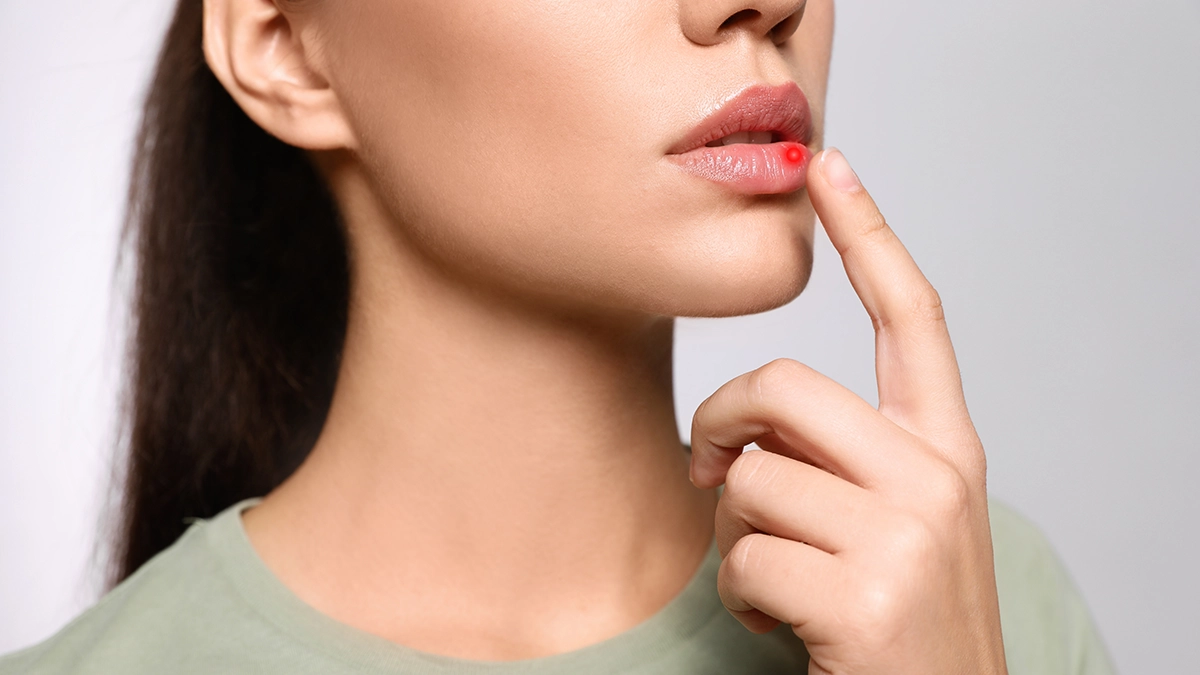
Canker sores, also known as aphthous ulcers, are painful mouth ulcers characterized by a white or yellow center with a reddish halo. They can appear on the inside of your cheeks, lips, or even on your gums, making eating and speaking a painful ordeal. Unlike cold sores, which are caused by the herpes simplex virus, canker sore pain is not contagious, but they can still cause significant discomfort.
The exact cause of canker sores can be elusive, but common triggers include emotional stress, dietary deficiencies, hormonal changes, food allergies, and injuries to the mouth. High stress levels, in particular, are often linked to their occurrence, making stress management a key component in preventing these sores. Additionally, avoiding sharp or irritating foods can help minimize the risk of developing canker sores.
Women are more prone to canker sores than men, possibly due to hormonal fluctuations, and there may also be a hereditary factor at play. Ensuring a diet rich in vitamins B-12 and zinc can aid both in preventing and speeding up the healing of these ulcers. Understanding these factors allows you to take proactive measures to reduce the frequency and severity of canker sores.
Benefits of Essential Oils for Canker Sores
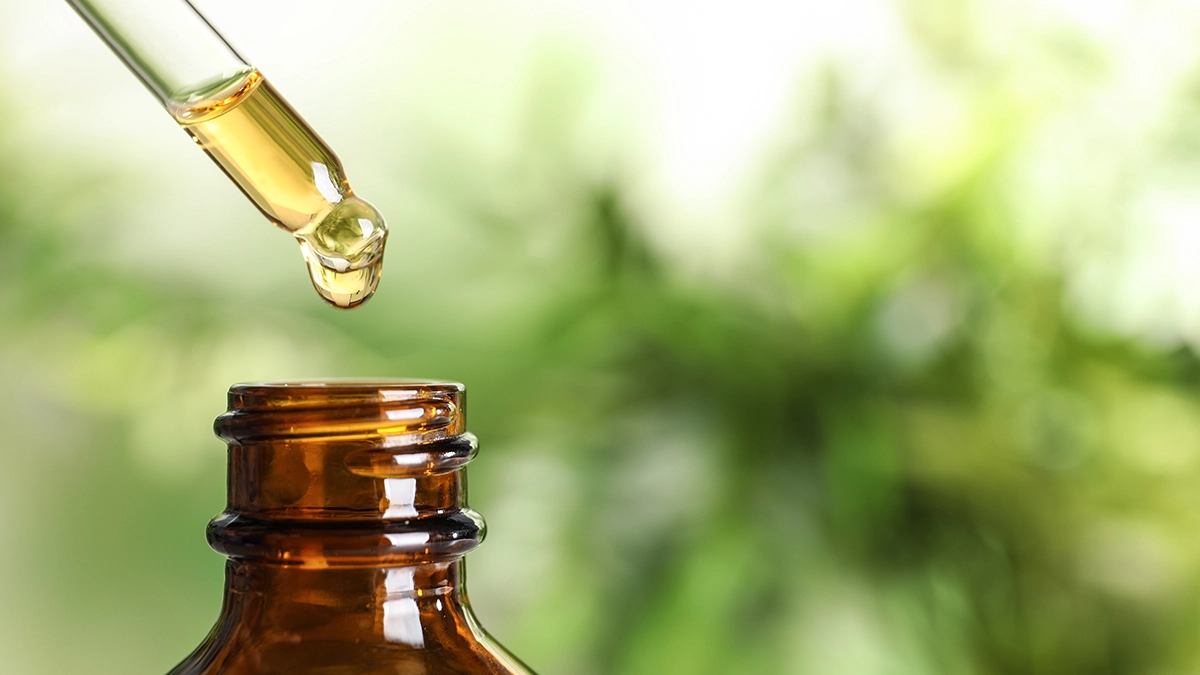
Essential oils have long been celebrated for their therapeutic properties, and they can offer significant relief from the discomfort of canker sores. These natural plant extracts are packed with compounds that provide various health benefits, making them a go-to remedy for many ailments, including mouth sores.
One of the primary benefits of essential oils for canker sores is their anti-inflammatory properties. Oils like lavender and peppermint can reduce inflammation, which helps alleviate pain and speed up the healing process. Additionally, essential oils can numb the affected area, providing immediate relief from the sharp pain associated with canker sores.
Moreover, essential oils like tea tree oil possess broad-spectrum antimicrobial properties, which can help prevent secondary infections that might complicate the healing of canker sores. Incorporating essential oils into your oral care routine harnesses their natural healing power, soothing pain and promoting faster recovery.
Top Essential Oils for Canker Sores
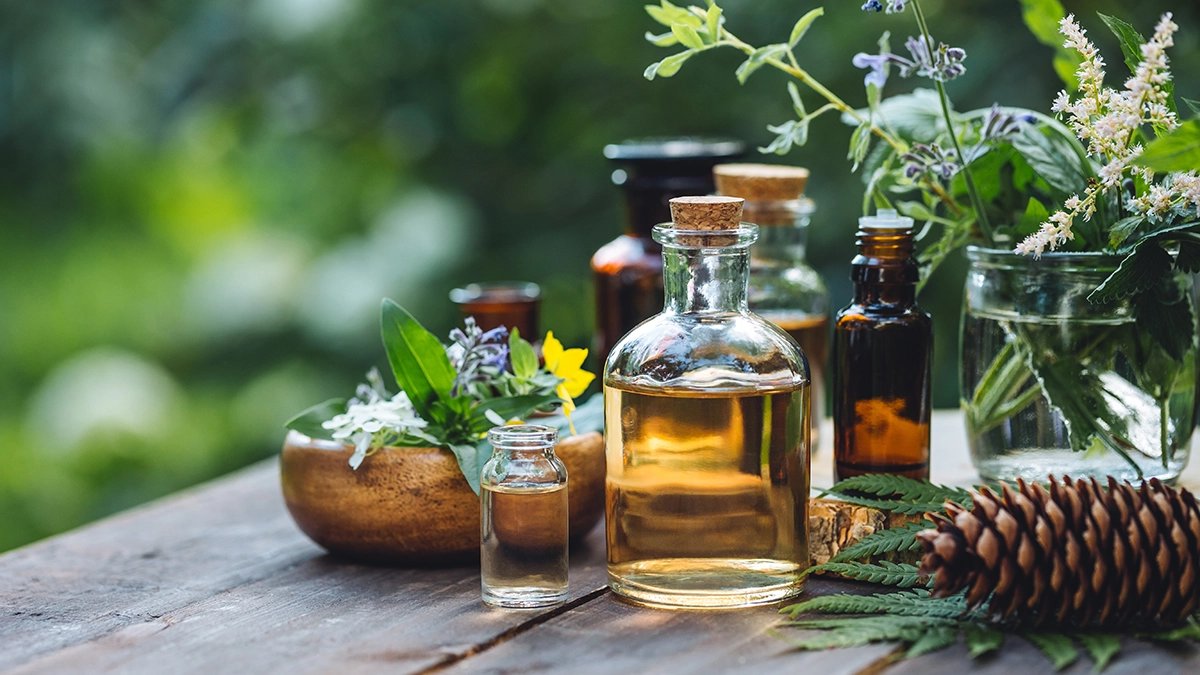
When it comes to treating canker sores, not all essential oils are created equal. Some stand out due to their specific properties that target the pain, inflammation, and microbial activity associated with these mouth ulcers. Here, we’ll explore the top essential oils that have proven to be particularly effective for canker sores.
From the soothing effects of peppermint oil to the powerful antibacterial properties of tea tree oil, each of these oils brings unique benefits to the table. Explore the specifics of each essential oil and discover how they can provide relief from canker sores.
Peppermint Oil: Nature’s Cooling Comfort
Peppermint oil is a popular choice for treating canker sores, thanks to its potent antiseptic and anti-inflammatory properties. The key component in peppermint oil is menthol, which provides a cooling sensation that can help soothe discomfort and reduce inflammation associated with canker sores.
- Scientific Insight: Menthol has been shown to have significant anti-inflammatory and analgesic effects, acting as a natural numbing agent that can alleviate pain while reducing swelling. A study by Sarah Kehili, M. Boukhatem (2020) highlights menthol’s efficacy in providing immediate relief from oral discomfort1
Dab a few drops of diluted peppermint oil directly onto the sore at the first sign of discomfort for optimal results. This can help numb the area and provide immediate pain relief, making it easier to eat and talk without irritation.
Tip: Always dilute peppermint oil with a carrier oil like coconut or olive oil to prevent any adverse reactions.
Clove Oil: The Natural Anesthetic
Clove essential oil is another powerhouse in the realm of essential oils for canker sores. Its antibacterial, anti-inflammatory, and analgesic properties make it highly effective in treating these painful ulcers. Clove oil works by numbing the affected area, providing immediate pain relief that can be as effective as over-the-counter numbing agents.
- Scientific Insight: Clove oil contains eugenol, a compound known for its strong analgesic and anti-inflammatory properties. Research shows that eugenol effectively reduces pain and swelling, offering relief similar to conventional numbing agents (Cortés-Rojas et al., 2014)2.
Mix a few drops of clove oil with a carrier oil and apply it directly to the sore using a cotton bud. This helps prevent infection and reduces swelling, promoting faster healing. Its powerful numbing effect can make a significant difference in managing the pain of canker sores.
Tea Tree Oil: The Microbial Warrior
Tea tree oil is renowned for its antibacterial, antifungal, and anti-inflammatory properties, making it a versatile remedy for canker sores. Studies have shown that tea tree oil can reduce inflammation and promote healing, making it an excellent choice for managing canker sores.
- Scientific Insight: Tea tree oil’s antimicrobial capabilities are well-documented, with research indicating its effectiveness in inhibiting bacterial and fungal growth. Its anti-inflammatory effects further support healing in oral ulcers (Carson et al., 2006)3
Caution: Tea tree oil should never be ingested, as it is toxic if swallowed. Always dilute it with a carrier oil before application, and use it topically to reap its benefits safely.
Lavender Oil: A Soothing Balm
Lavender oil is well-known for its soothing, anti-inflammatory, and antiseptic qualities, making it a great option for treating canker sores. Applying lavender oil can help reduce the size of the ulcer and alleviate pain, providing much-needed relief.
- Scientific Insight: Lavender oil’s antimicrobial properties contribute to its ability to prevent infections and promote healing. Studies highlight its effectiveness in reducing microbial activity and accelerating recovery in oral ulcers (Altaei, D. T., 2012)4.
Dilute lemon oil with a carrier oil and apply it to the sore to enjoy its potential benefits. Its stress-relieving properties can also contribute to overall oral health improvement.
How to Use Essential Oils for Canker Sores
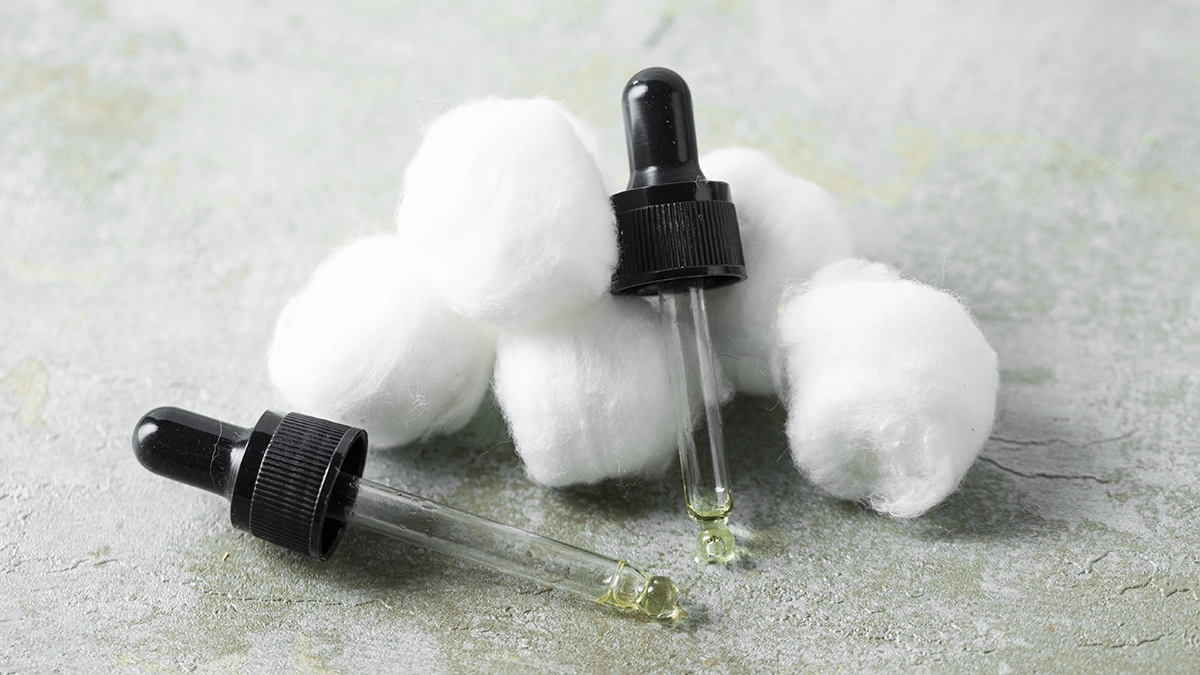
There are several effective methods for using essential oils to treat canker sores. Whether you prefer direct application, a soothing mouth rinse, or another technique, it’s important to know how to use these oils safely and effectively.
Let’s explore the best ways to incorporate essential oils into your canker sore treatment routine.
Dilution and Application
Before applying essential oils to canker sores, it’s crucial to dilute them with a carrier oil like coconut or jojoba oil to avoid skin irritation. Carrier oils not only help in safely applying the essential oils but also enhance their absorption and effectiveness.
Proper dilution is key to preventing adverse reactions. Many essential oils are highly concentrated, and applying them undiluted can lead to skin irritation, allergic reactions, or other negative effects.
Always mix a few drops of your chosen essential oil and eucalyptus oil with a suitable carrier oil before application to ensure safe and effective treatment.
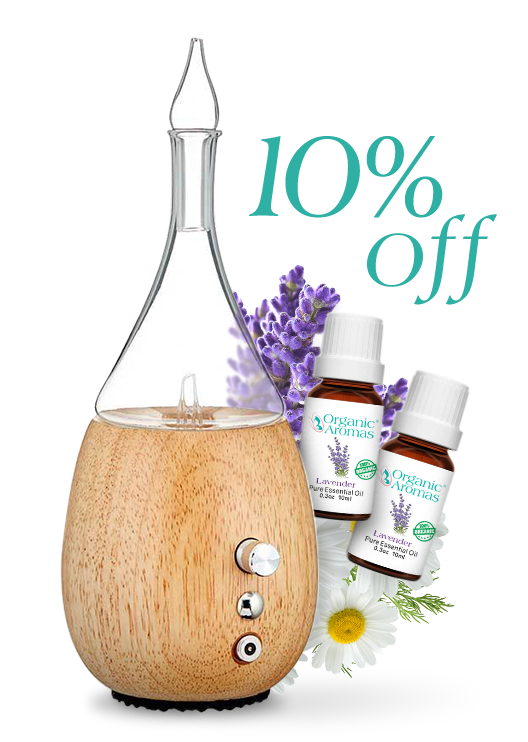
Join Now and Get a Coupon for 10% Off!
Direct Dabbing Method
The direct dabbing method is a straightforward way to apply essential oils to canker sores. Using a cotton bud, you can apply the diluted essential oil directly to the sore, providing targeted treatment right where it’s needed most. This method allows for precise application and can help maximize the benefits of the essential oil.
Mouth Rinse Solution
Creating a mouth rinse solution with essential oils is another effective way to treat canker sores. Simply mix a few drops of essential oils like peppermint or tea tree oil with water to prepare a soothing rinse that can help alleviate discomfort and promote oral health.
Using a mouth rinse made from essential oils can be particularly beneficial for treating multiple sores or for overall oral hygiene. Rinse your mouth with the solution multiple times a day to reduce pain and speed up healing.
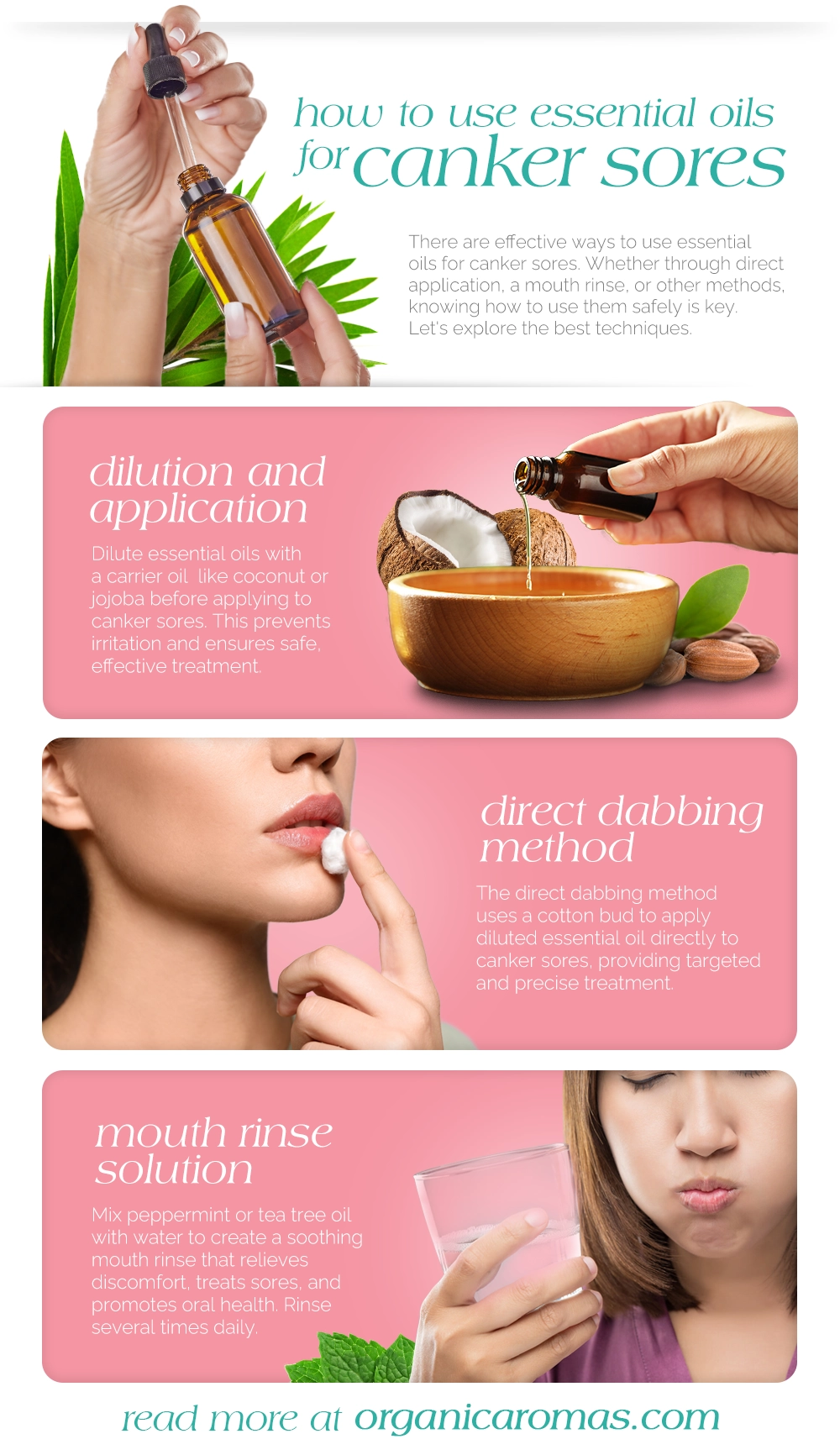
Boosting Your Environment and Immune System with a Nebulizing Diffuser
In addition to direct application methods, enhancing your environment with a nebulizing diffuser can be a powerful way to support your immune system and manage stress, two key factors in preventing and healing canker sores. Nebulizing diffusers disperse essential oils into the air in their purest form without heat or water, preserving their therapeutic properties and providing maximum benefits.
How Nebulizing Diffusers Work
Nebulizing diffusers work by using pressurized air to break down essential oils into a fine mist of tiny droplets that are easily absorbed by the body. Unlike ultrasonic diffusers that use water and heat, nebulizing diffusers maintain the potency of the essential oils, allowing you to enjoy their full therapeutic effects.
Benefits of Using a Nebulizing Diffuser
- Enhanced Air Quality: By dispersing essential oils into the air, nebulizing diffusers can purify and refresh your environment, reducing airborne bacteria and allergens. This creates a cleaner and healthier space, which is particularly beneficial for those prone to canker sores.
- Immune System Support: Certain essential oils, such as eucalyptus, tea tree, and lemon, are known for their antimicrobial properties and can help strengthen your immune system. By diffusing these oils, you can enhance your body’s natural defenses and reduce the likelihood of developing canker sores.
- Stress Reduction: Stress is a common trigger for canker sores. Diffusing calming essential oils like lavender or chamomile can promote relaxation and stress relief, helping you maintain emotional balance and prevent canker sore flare-ups.
- Continuous Aroma Therapy: Unlike topical applications that require reapplication, a nebulizing diffuser provides continuous aromatherapy benefits. Simply add a few drops of your chosen essential oil, and let the diffuser create a soothing and healing atmosphere throughout your home.
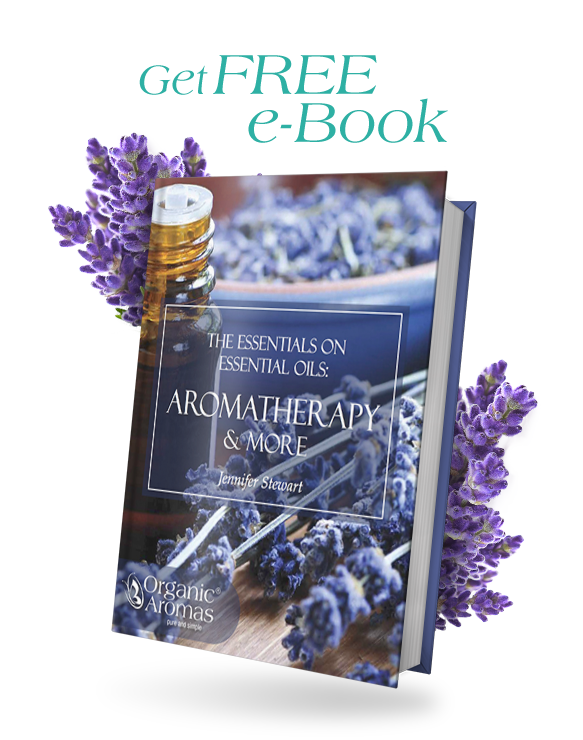
Sign Up to Get Your FREE
e-Book Here…
Safety Precautions When Using Essential Oils
While essential oils can be incredibly beneficial, it’s important to use them with caution. Individual sensitivities to essential oils vary, and using them improperly can lead to unintended reactions. Signs of sensitivity include skin irritation, breathing difficulties, and digestive disturbances.
Always conduct a spot test on another part of your skin before applying essential oils to an open sore. Diluting essential oils with a carrier oil can help prevent skin irritation, making the treatment safer. If you experience any negative reactions, stop using the oil immediately and consult a healthcare professional.
Ingesting essential oils can lead to severe digestive issues; therefore, it is crucial to use them topically and not internally. Research reputable sources and consult with a qualified aromatherapist or physician before starting any essential oil treatment. This ensures you are using the oils safely and effectively.
Other Natural Remedies for Canker Sores
In addition to essential oils, there are other natural remedies that can help alleviate canker sores. Here are some options to consider:
- Red light therapy, which has been shown to speed up the healing process by 49%
- Dietary adjustments
- Stress management techniques
- Good oral hygiene practices
Incorporating these holistic approaches can also complement essential oil treatment.
A well-balanced diet rich in vitamins and minerals supports the body’s natural healing processes, making it easier to recover from canker sores. Practicing stress management techniques like meditation and deep breathing can help reduce the frequency of canker sores triggered by stress. Additionally, maintaining good oral hygiene, including regular brushing and flossing, can prevent infections and promote healing.
Combining these natural remedies with essential oil treatments creates a comprehensive approach to managing and preventing canker sores.
Essential Oil for Canker Sores – The Final Word
There is no doubt that essential oils offer a natural and effective way to manage the pain and promote the healing of canker sores. From the anti-inflammatory benefits of lavender and peppermint oils to the powerful antibacterial properties of tea tree and clove oils, these natural remedies can provide significant relief.
Remember, the key to successful treatment is using essential oils safely and effectively. Dilution, proper application methods, and consulting with healthcare professionals are crucial steps in this process. By integrating essential oils into your oral care routine, along with other natural remedies, you can take a holistic approach to improving your oral health and overall well-being.

Join Our Exclusive Member Club to get Big Discounts!
Frequently Asked Questions
Can essential oils cure canker sores completely?
Essential oils won’t cure canker sores, but they can help ease pain and speed up healing. Remember to also look into any underlying issues like stress or diet!
How often should I apply essential oils to canker sores?
You can apply lavender essential oil to canker sores 2-3 times a day, but make sure to dilute it properly and check with a healthcare professional for personalized advice.
Are there any essential oils that should be avoided for canker sores?
Yes, some essential oils can irritate canker sores if not properly diluted. It’s best to avoid harsh oils and stick with soothing options like lavender or peppermint.
Can I use essential oils internally to treat canker sores?
It’s best to avoid ingesting essential oils, as they can be toxic and lead to serious digestive problems. Instead, consider using them topically in a diluted form or as a mouth rinse, and always check with a healthcare professional first.
What should I do if I experience a negative reaction to an essential oil?
If you have a negative reaction to an essential oil, stop using it right away and apply a carrier oil to soothe any irritation. It’s also a good idea to reach out to a healthcare professional for guidance.
- Kehili, S., Boukhatem, M., Belkadi, A., Ferhat, M., & Setzer, W., 2020. Peppermint (Mentha piperita L.) essential oil as a potent anti-inflammatory, wound healing and anti-nociceptive drug. European Journal of Biological Research, 10, pp. 132-149
- Cortés-Rojas, D. F., de Souza, C. R. F., & Oliveira, W. P., 2014. Clove (Syzygium aromaticum): A precious spice. Asian Pacific Journal of Tropical Biomedicine, 4(2), pp. 90-96.
- Carson, C. F., Hammer, K. A., & Riley, T. V., 2006. Melaleuca alternifolia (Tea Tree) oil: A review of antimicrobial and other medicinal properties. Clinical Microbiology Reviews, 19(1), pp. 50-62
- Altaei, D. (2012). Topical lavender oil for the treatment of recurrent aphthous ulceration.. American journal of dentistry, 25 1, 39-43

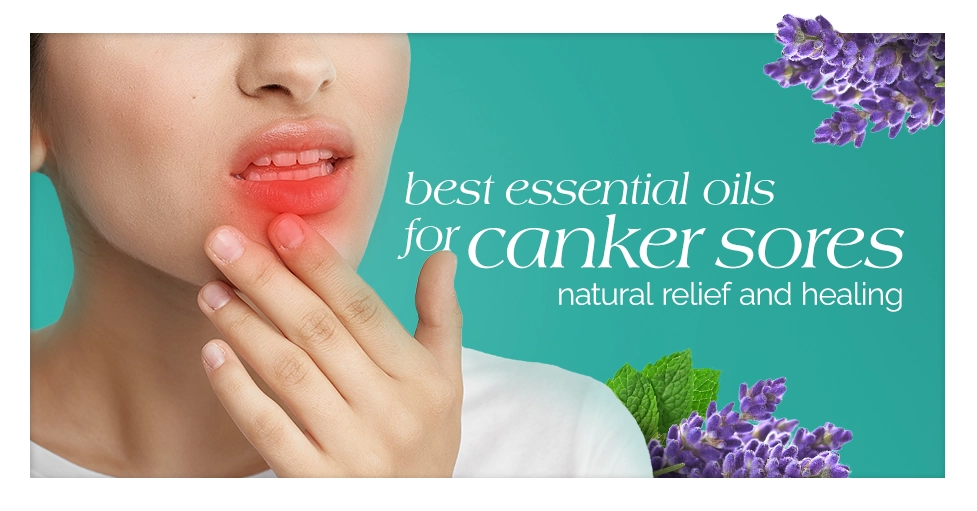

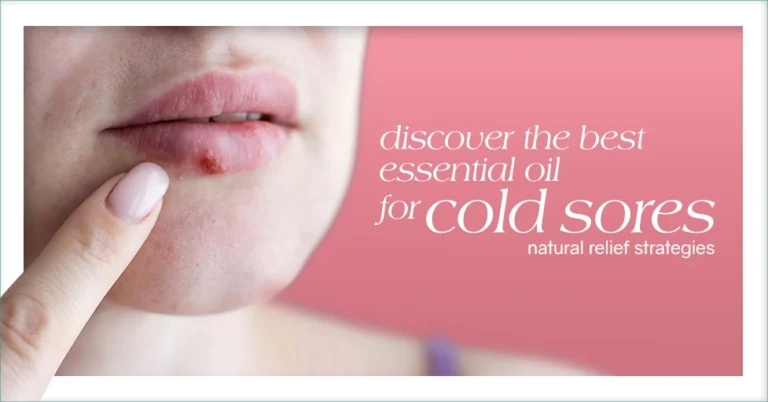

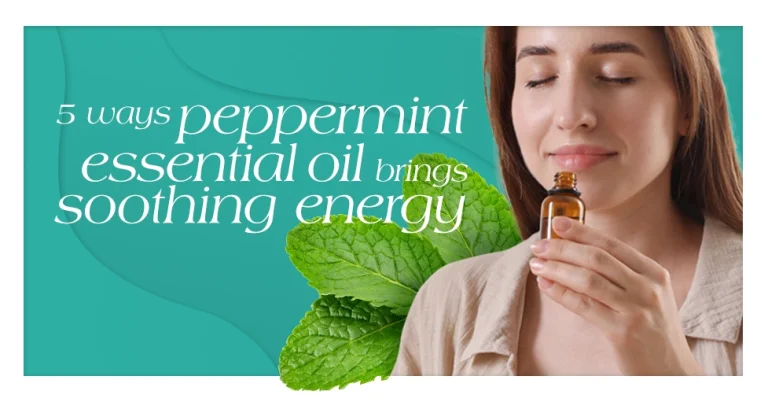
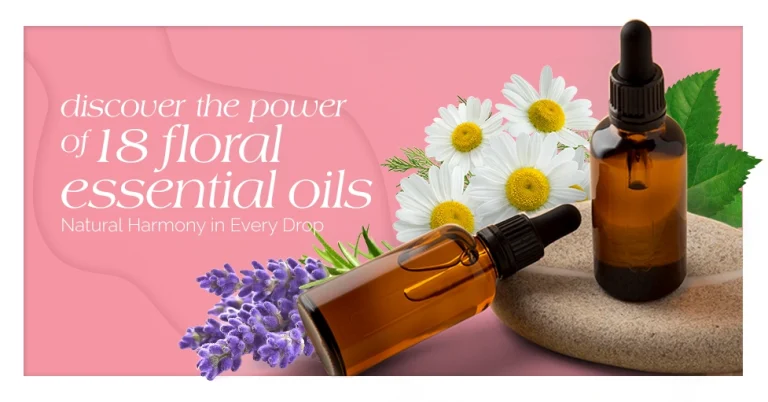

Thank goodness I’ve never had a cold sore.